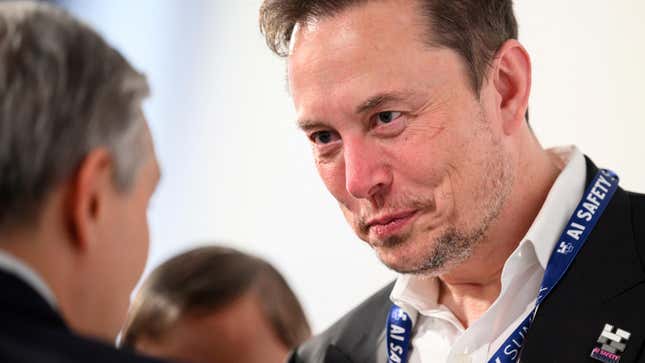
In a post on his social network X, Elon Musk tweeted his new company xAI will release its first artificial intelligence product on Saturday, Nov. 4.
“Tomorrow, @xAI will release its first AI to a select group,” he wrote on the platform formerly known as Twitter. “In some important respects, it is the best that currently exists.”
Since Musk first announced xAI back in July, he hasn’t elaborated on much of anything about what exactly the company will do, nor what it’s been working on in the last five months. According to its website, xAI’s goal is to “understand the true nature of the universe.”
Perhaps what is key is this point: xAI is independent from X Corp, but the company will work closely with both X (Twitter) and Tesla, according to the company site. That means Musk’s existing properties could be boosted by xAI’s models. The 12-member, all-male team worked at the likes of big-name AI companies like DeepMind, OpenAI, Google Research, Microsoft Research, and some have done research among large language models (LLM) or in general machine learning.
xAI is just the latest AI company to launch amid a time when venture capital money is flooding into the industry. More than a quarter of VC funding has gone to AI-related startups this year, according to August data from market research firm Crunchbase.
This isn’t Musk’s first go-around with starting an AI company, either. Back in 2015, OpenAI was launched as a nonprofit by a group of Silicon Valley titans including Sam Altman, Peter Thiel, LinkedIn co-founder Reid Hoffman—and Musk. The group created a research lab focused on building software that could replicate human intelligence and capabilities, or what they termed “artificial general intelligence.”
But three years later, Musk resigned from OpenAI’s board, reportedly in part due to a growing conflict of interest with OpenAI, according to The New York Times. By then, Musk was building his AI driver assistance technology, Autopilot, at Tesla and would poach a key employee from OpenAI to work on it.